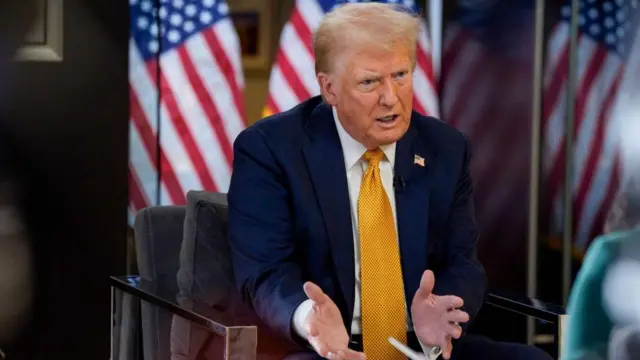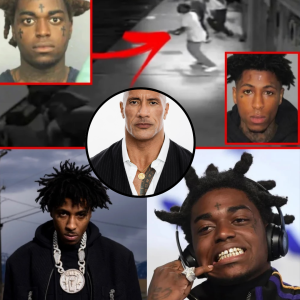Mr. Trump has long opposed granting citizenship to foreigners born on US soil and pledged to abolish the policy immediately after taking office.
During his 2024 presidential campaign, Donald Trump vowed to deport immigrants en masse and end the policy of granting citizenship to foreigners born on US soil, which is stipulated in the 14th Amendment of the US Constitution.
)
“All persons born or naturalized in the United States, and subject to the jurisdiction thereof, are citizens of the United States and of the state wherein they reside,” states the 14th Amendment, ratified by the US Congress in 1868. The policy was intended to ensure that the children of slaves brought to the US against their will were recognized as US citizens.
Observers say the language of the 14th Amendment is very clear, affirming that anyone born on US territory automatically becomes a citizen of this country. This right is also known as jus soli , or “right of the native-born”.

Since then, this right has been extended to all children born in the United States, regardless of whether the child’s parents were illegal immigrants or came to the United States on tourist or student visas. About 27 countries around the world have similar policies, granting citizenship to people born on their territory, regardless of where their parents are from.

President-elect Donald Trump speaks in Washington, DC on November 13. Photo: AFP
However, for many years, Mr. Trump has always considered this a “ridiculous regulation” that encourages many illegal immigrants to cross the border into the US to give birth. In an interview on NBC’s Meet the Press last weekend, Mr. Trump reiterated his commitment to ending this policy.
He and his allies say jus soli policies are driving people to come to the US illegally or to “birth tourism” in order to gain citizenship. They stress that this right is being abused and that the requirements for becoming a US citizen should be tightened.
“Citizenship should not be granted to people who come to the United States solely to have children,” said Eric Ruark, research director of NumbersUSA, an organization that advocates tightening immigration.
The organization supports changes to birthright citizenship that would require at least one parent to be a lawful permanent resident or a U.S. citizen.
In a post on his 2023 campaign website, Mr. Trump also raised a similar idea and said he would sign an executive order on his first day in office, requiring federal agencies to eliminate the provision that automatically grants citizenship to people born in the United States.
He said this was to ensure that the children of illegal immigrants would no longer automatically receive US citizenship and enjoy social benefits in this country.
CNN journalist Priscilla Alvarez predicts that the new Trump administration could stop issuing passports to the children of undocumented immigrants, sparking a legal battle over the issue. In addition, Trump’s team could also increase “rapid deportation” of undocumented immigrants across the country without going through the courts, which could also run into obstacles under the 14th Amendment, which guarantees everyone equal rights under the law.
Both Mr Trump and the president-elect’s appointed “border czar” Tom Homan have said they would not hesitate to deport parents of US citizen children, even if it means separating them from their children.
“If you come to this country and have a child, you are responsible for that,” Homan said, adding that he would target undocumented people living in cities with protective immigration policies like Chicago.
During his first term as president, Mr. Trump tried to restrict visas for pregnant women who wanted to enter the US to give birth.
The Migration Policy Institute estimates that about 5.5 million American children under the age of 18 had at least one parent who was an illegal immigrant in 2019, accounting for 7% of the country’s children. The vast majority of those children were granted U.S. citizenship under the jus soli policy .

Migrants walk on the Huixtla highway in Chiapas state, Mexico, looking for a way to enter the US on December 22. Photo: AP
One of the main proponents of ending jus soli for children of immigrants brought to the United States illegally is attorney John Eastman, who has promoted the idea that the country has misunderstood the 14th Amendment for more than 150 years.
Eastman argues that the phrase “subject to the jurisdiction of the United States” in the 14th Amendment essentially disenfranchises people who are not legally in the country. According to Eastman and other researchers, Congress could simply pass a law stating that the children of people not legally in the United States cannot be citizens.
However, this argument is considered extreme and has been rejected by many lawyers and judges.
James Ho, now a Trump-appointed judge on the 5th Circuit Court of Appeals, made a different argument for jus soli in an interview with Reason in November.
“Birthright citizenship clearly does not apply in cases of war or invasion. No one I know believes that the children of foreigners who invaded the United States are entitled to American citizenship,” he said.
In an earlier commentary about Texas’s deployment of buoys on the Rio Grande border with Mexico to prevent illegal border crossings, Judge Ho wrote that Texas was trying to repel an “invasion” of migrants.

Buoys were placed by Texas authorities on the Rio Grande River bordering Mexico to prevent illegal border crossings. Photo: CNN
However, many experts believe that Mr. Trump’s idea of ending jus soli is unlikely to succeed. Alex Nowrasteh, vice president for social and economic policy studies at the Cato Institute, asserted that the US Constitution clearly states that birthright citizenship cannot be ended by executive order.
“I don’t care about his statements. Trump has been saying things like that for almost a decade, but did nothing to promote them in his first term. The law and the judges are completely against his idea that children of illegal immigrants born in the United States are not American citizens,” Nowrasteh said.
Some observers say Mr Trump could direct the Republican-controlled Congress to pass legislation ending birthright citizenship, but it would face multiple legal challenges in the Supreme Court, as unconstitutional.
The jus soli policy would only be overturned if the US changed its constitution, which is difficult to do in the current climate of deeply divided politics, according to CNN analyst Zachary Wolf . Wolf added that no amendment has been ratified in the US in more than 30 years.
Proposed constitutional changes would need to receive support from a two-thirds vote in both houses of Congress or from a two-thirds vote in a constitutional convention in each state. The amendment would then need to be ratified by three-quarters of state legislators, or by special conventions called in each state.
“There are virtually no reputable lawyers or scholars who agree with President-elect Trump on ending birthright citizenship, and there is no precedent to support the idea,” said Aaron Reichlin-Melnick, senior fellow at the American Immigration Council.






